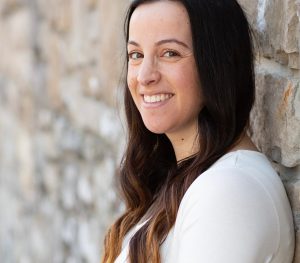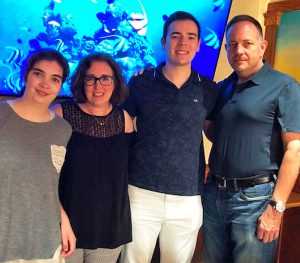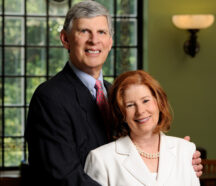Planning for Good – A (Retired) Financial Advisor’s Perspective on Wealth Planning, Family Succession and Charitable Giving

Pete Sachs is a past president of The Associated Jewish Charities of Baltimore, long-time Associated Board member, and a past president of Jewish Family Services. He is also active with many other not-for-profits, including his beloved Park School. Pete has spent more than 50 years helping clients fashion financial plans that address their wishes for their families and the causes that they care about. Looking back on his long career, Pete reflects on what really matters when making your financial and charitable plans.
If there is one thing I learned in my years of working with families on their financial plans, it is that no two families are alike, and no two plans can ever really be alike. I always approached my role as the “quarterback” or “CFO” (chief financial officer) for an individual, couple or family. In that role, listening is key to understanding who and what matters most to my clients. And I often found myself being the one who coordinated all of the advisors – attorneys, CPAs, investment advisors and insurance advisors, among others. I don’t think this is a particularly unique approach, but I think it’s important for our clients to understand that a team concept based on input from other professionals and from other affected family members, is likely to produce a better plan than one done piecemeal.
Not only is it important, then, for all of the advisors to work together and devise a plan based on the client’s needs, I found that communication within the family is another key element to a successful plan. I would help families talk to one another and advise when and how to tell second and third generations about what assets were going to be inherited, as well as assets that were to be given away to others and to charity. It was about more than the assets – often it was just as important to understand the “why.” I always advised the senior family members to have these discussions while they were still alive, so as to avoid possible misunderstandings about why plans were made the way they were.
I would urge clients to talk about their values with their advisors and with their families. After all, it is not just the fortune that one receives that matters, but also the values that inform how that fortune can make a better life for succeeding generations and, through charitable planning, a better life for humankind.
Thus, in no particular order, here are some of the things that I hope all of my clients would consider when communicating their plans to their families, no matter what their wealth may be:
- Have conversations with your family about what they stand to inherit, and your reasons for doing so.
- Make sure that family members know your end of life decisions, including medical decisions and who to call for assistance when the time comes.
- Share with your advisors and your family what values you hold dear, and why you have chosen to make the plan that you have.
- If you are leaving money to charity, do you want to leave it to organizations to decide how to use the money by making outright bequests to the organizations, or do you want to give those organizations further direction on where you would like to see that money used?
- Do you want to empower succeeding generations to have the resources to be charitable by establishing a donor advised fund or foundation? Should you establish these vehicles now so you can work with the next generation in making charitable decisions together, or will the fund or foundation be established after your lifetime?
The key to having these conversations with family is to give them the opportunity to ask questions about how things will work and why you made the decisions that you did. It is your right to make those decisions – when the next generation understands the why, much potential conflict can be avoided. Not everyone may agree with your decisions, but they will understand why.
In my dealings with clients, I have always tried to decipher what makes someone tick in order to craft thoughtful wealth plans for clients. For an advisor, with experience comes knowing exactly what to ask, which compels people to look inward for an answer that they own. It is far better to lead clients and all relationships to a place where clients own their own dreams and goals instead of telling what they should be.
Subscribe to our newsletter
The Associated is a home for everyone in the Baltimore Jewish community. We offer several email lists to help people find a community, engage with their peers and support Jewish journeys around the world.
Join Our Mailing ListAdd Impact to Your Inbox
Sign up for our newsletter
Subscribe to our newsletter
The Associated is a home for everyone in the Baltimore Jewish community. We offer several email lists to help people find a community, engage with their peers and support Jewish journeys around the world.
Join Our Mailing List









 Please Wait while we loading your video.
Please Wait while we loading your video.